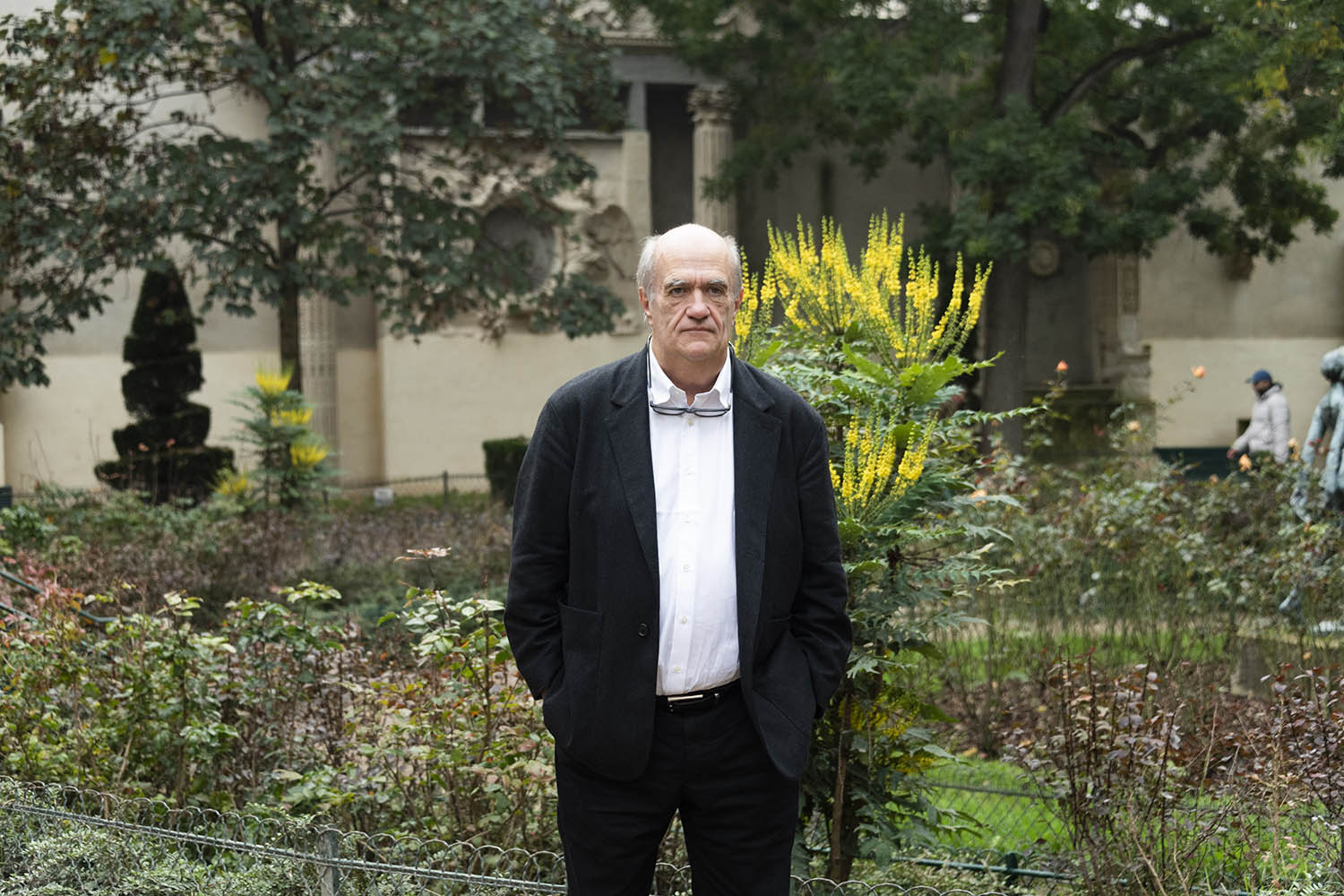Colm Tóibín was born in Enniscorthy, County Wexford, the setting for several of his novels, including Brooklyn, Nora Webster and, most recently, Long Island, out in paperback on 5 June, in which Eilis Lacey, the character brought to life by Saoirse Ronan in the film adaptation of Brooklyn, returns home from her life in the US. Tóibín has also written novels featuring Henry James and Thomas Mann, as well as plays and essays, and his work has won numerous awards. He lives near Pasadena, in east Los Angeles, where he does not drive a car to avoid the mayhem of the freeway. He is about to turn 70.
You’re talking to me from your home in Los Angeles; in January you wrote a gripping dispatch about the wildfires. How are things now?
It has sort of changed things here: there’s so much greenery, so many hills, so much scrubland – and all of it is dangerous. More so if it rains in the winter, because the rain makes the scrub grow stronger and more likely to burn. But the advantage of being here is the days are long, so you can have long stretches where you’re working or reading and realising that the whole rest of the day is going to go on like that too. People say it’s very peaceful, but I don’t find that peaceful as much as just very productive and useful.
How is work for you at the moment?
There are a few things I’ve always wanted to do. One of them was to write a libretto, and last year for the Wexford opera festival, I wrote a comedy called Lady Gregory in America. And I thought: well, this is good, because everyone’s howling with laughter and the singers seem pleased. So I’ve written two more that are going to be performed in October. I’ve never managed comedy before, and now I’m open for business in libretto writing. But there’s going to be no death, no two lovers committing suicide in the same grave, no Aida. Everything has to end completely happily for everybody.
Do you really think you’ve never managed to write comedy?
There’s an English tradition I love, which would include Evelyn Waugh, Alan Sillitoe, John Wain, Kingsley Amis, Martin Amis, in which your hapless character is involved in some setup of engagements which will end badly with all sorts of physical things, vomit perhaps. It’s in Flann O’Brien too. But as soon as I start writing fiction, I get morose. Long Island is the first novel I’ve written in which no one dies.
Being open for business as a librettist doesn’t mean you’ve turned your back on the novel, though?
Ah no, no, no. It just means I’m working harder.
How do you think AI is going to affect you as a writer?
Newsletters
Choose the newsletters you want to receive
View more
For information about how The Observer protects your data, read our Privacy Policy
It’s going to be the end of us all. And maybe that’s good. In other words, it’s very clear that this idea of sensibility, which we go on about a lot – “no machine could ever replace my sensibility, which is so rich, varied, complex, and arising from experience and from history” – that’s all rubbish. You can actually manufacture that.
You can make something like it. But will there not always be that little something that distinguishes it from something written by a human being?
No, that little thing doesn’t exist. And the more material they put into the machines, the more the machines will just learn about what sentences sound like, what rhythm is like. And the novelist can go and do something more useful. I don’t quite know what that is.
You sound very sanguine about it. Is it because you have such a long, varied and interesting creative career in the bag?
Yes, I suppose it’s a lovely idea that you could close the door behind you, and maybe lock it and throw away the key. And the house of fiction is not only empty, it’s been taken over by a corporation. The alarming part is that those gents who seem so filled with hope and offering us such openness, such as Mark Zuckerberg, were not uncomfortable in the White House with the nearest thing we have to a fascist in politics.
How has it felt to live in the US over the past few months?
I remember saying or thinking that when Trump is elected this time one of the things he’s going to do is open a sort of concentration camp, and let it be photographed. And he did even worse, because the photographs from [Cecot mega-prison in] El Salvador are astonishing. It seems anyone can be picked up now: you’ll be driving along a freeway and suddenly Ice [Immigration and Customs Enforcement] surrounds your car. It’s extremely frightening. My only thing about Trump is I won’t look at him on television. If his face appears I’ll turn off. I’ll read about him; there’s no point ignoring him. But that idea of watching him, of letting that block of ugliness and all the makeup and the terrible hair dye and the voice and the look of it, into your spirit – the everydayness of it, the loudness of it, the sheer amount of it – the only way to protect yourself is not to look at him. That’s a little thing against a huge business.
Do you think you would ever write fiction set in the contemporary US?
It’s really very hard because I don’t know what some things are actually called. Do they call it a fridge or refrigerator? Do people actually use the word ice-box? Does anyone ever say automobile? How do they do self-deprecation? Do they ever do it?
I’m open for business in libretto writing. But there’s going to be no death
I’m open for business in libretto writing. But there’s going to be no death
Fictionally, where is your relationship with Enniscorthy and its characters?
There’s a whole part of it I still haven’t gone to as a novelist. I still have unfinished business there, a whole childhood thing, adolescent thing, that I’m still circling around, trying to find a way into it in fiction. I’ve been trying, but it’s not working.
What do you think isn’t working?
It’s just that sort of plain style. Sometimes, you need one more thing to bring it up, which is probably what AI is working towards at the moment, so that it has some sort of density or texture in the prose.
You’re about to celebrate your 70th birthday, and you’re clearly full of energy and plans. How do you feel?
I play tennis, I try to sleep well and I haven’t had an alcoholic drink for seven years. When I had cancer, I didn’t go back to drinking because I thought I’d had enough funny liquids put into me with chemo. I was trying to manage an equilibrium after chemo, just to keep going every day without getting depressed. And I thought the one thing that could really bring it down was a big hangover.
You say you can’t write comedy, but your accounts of being diagnosed with cancer and going through treatment were often very funny.
If you’re going to write a piece about having cancer, it’s bad manners to go on about, you know: another needle came, and that was the moment I thought of death. Dark laughter is required. If someone’s written a tedious piece about having cancer, I’m not reading that. I must actually put it up on the wall now that I’m 70: don’t be tedious.
Long Island is published in paperback on 5 June (£9.99). Pre-order a copy at observershop.co.uk to receive a special 20% launch offer. Delivery charges may apply
Photograph by Magali Cohen/AFP/Getty

